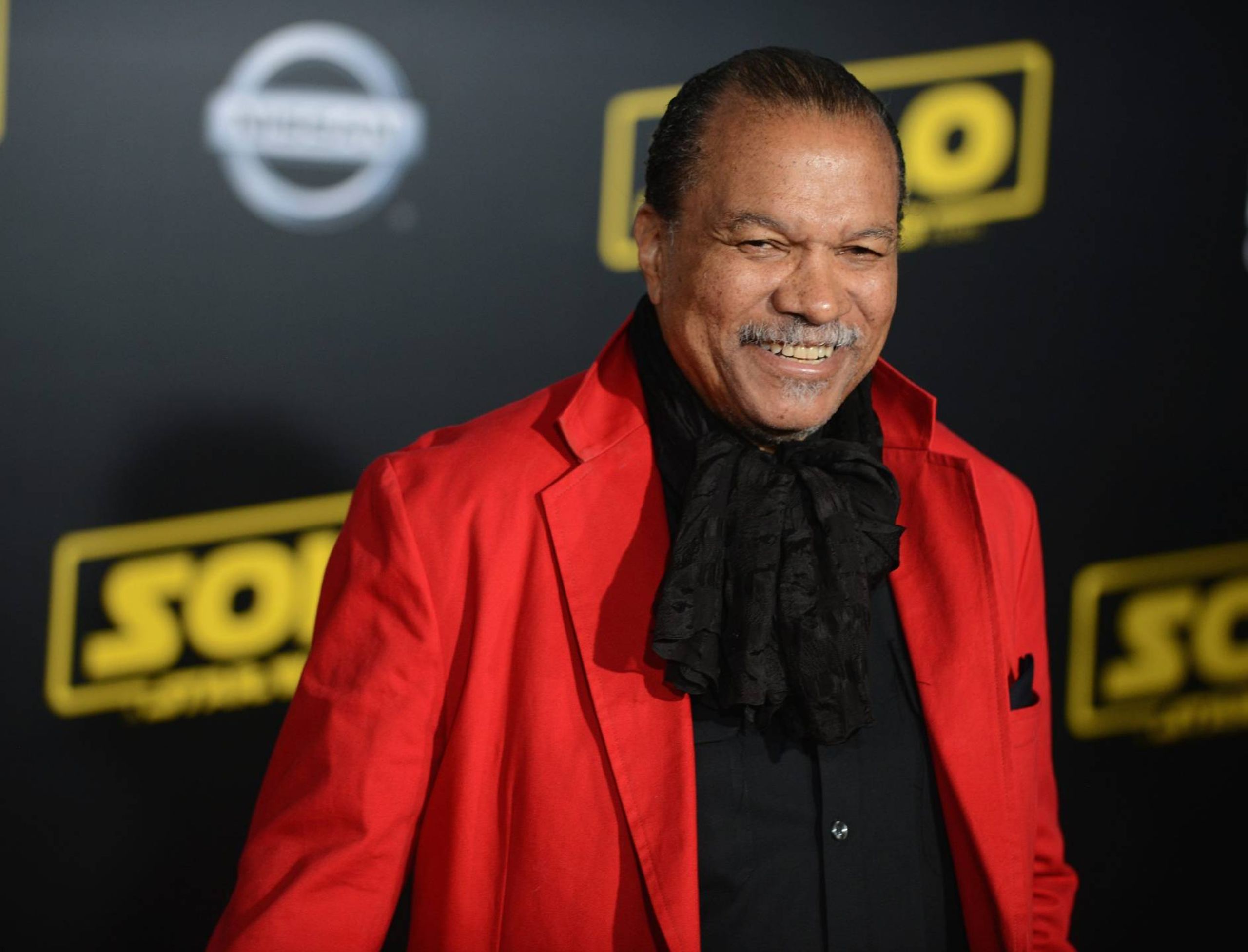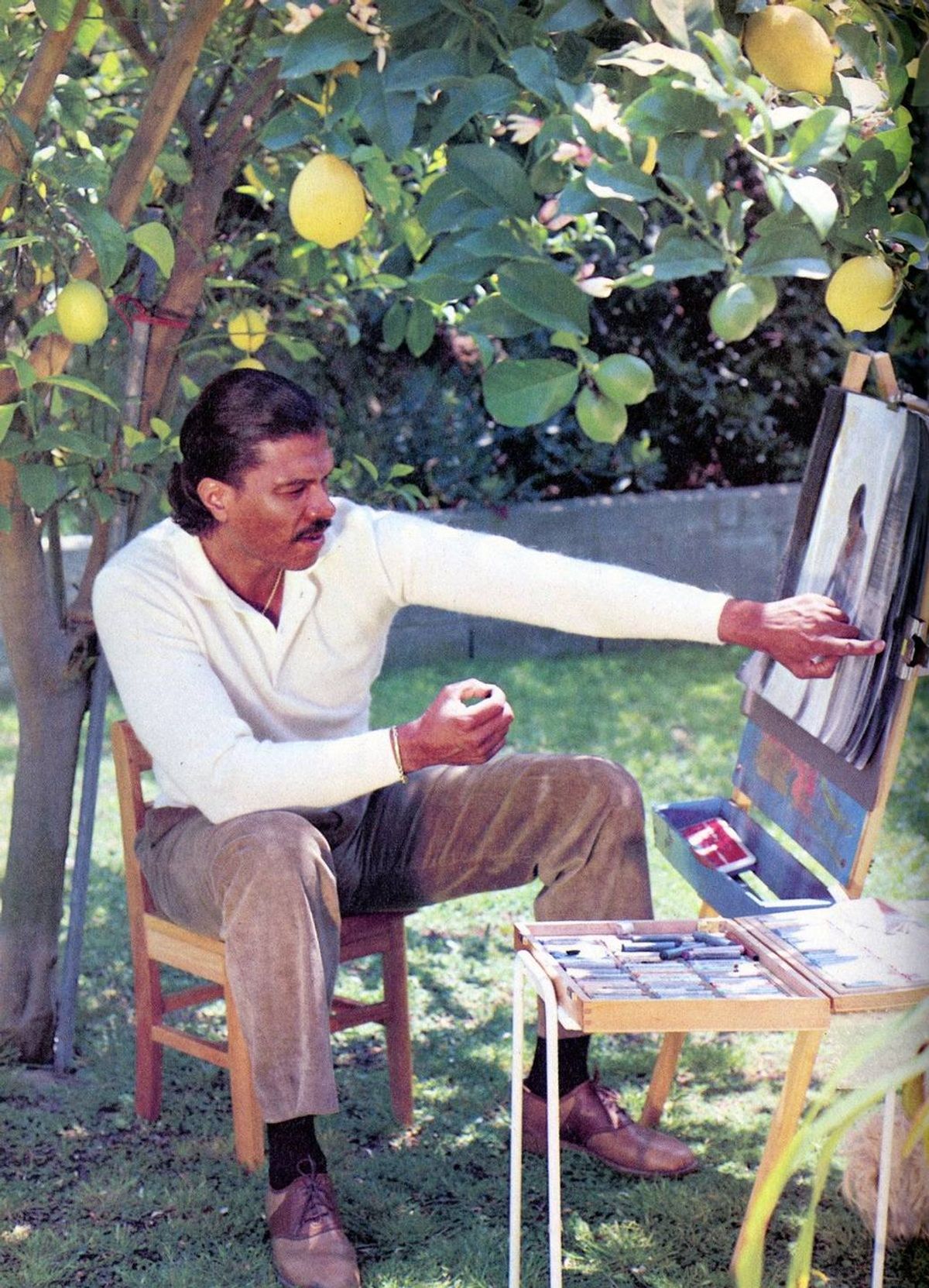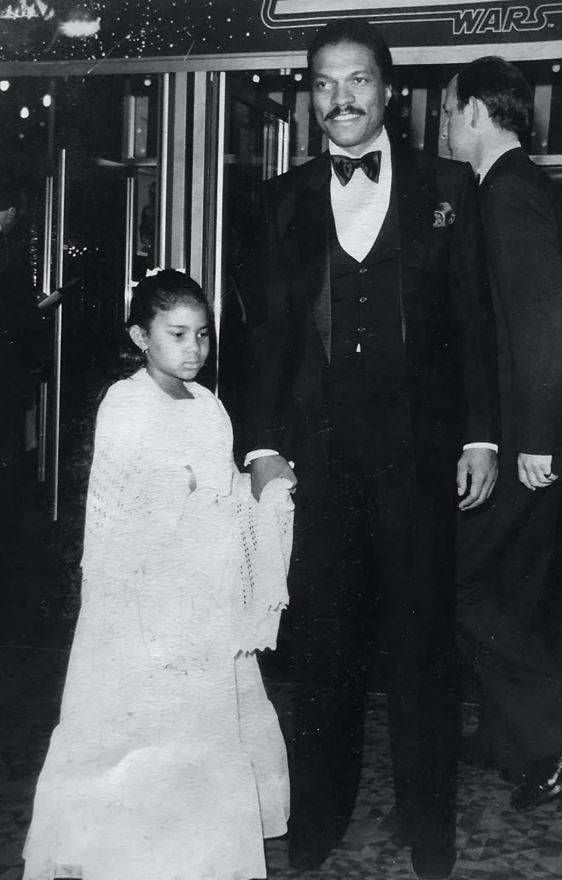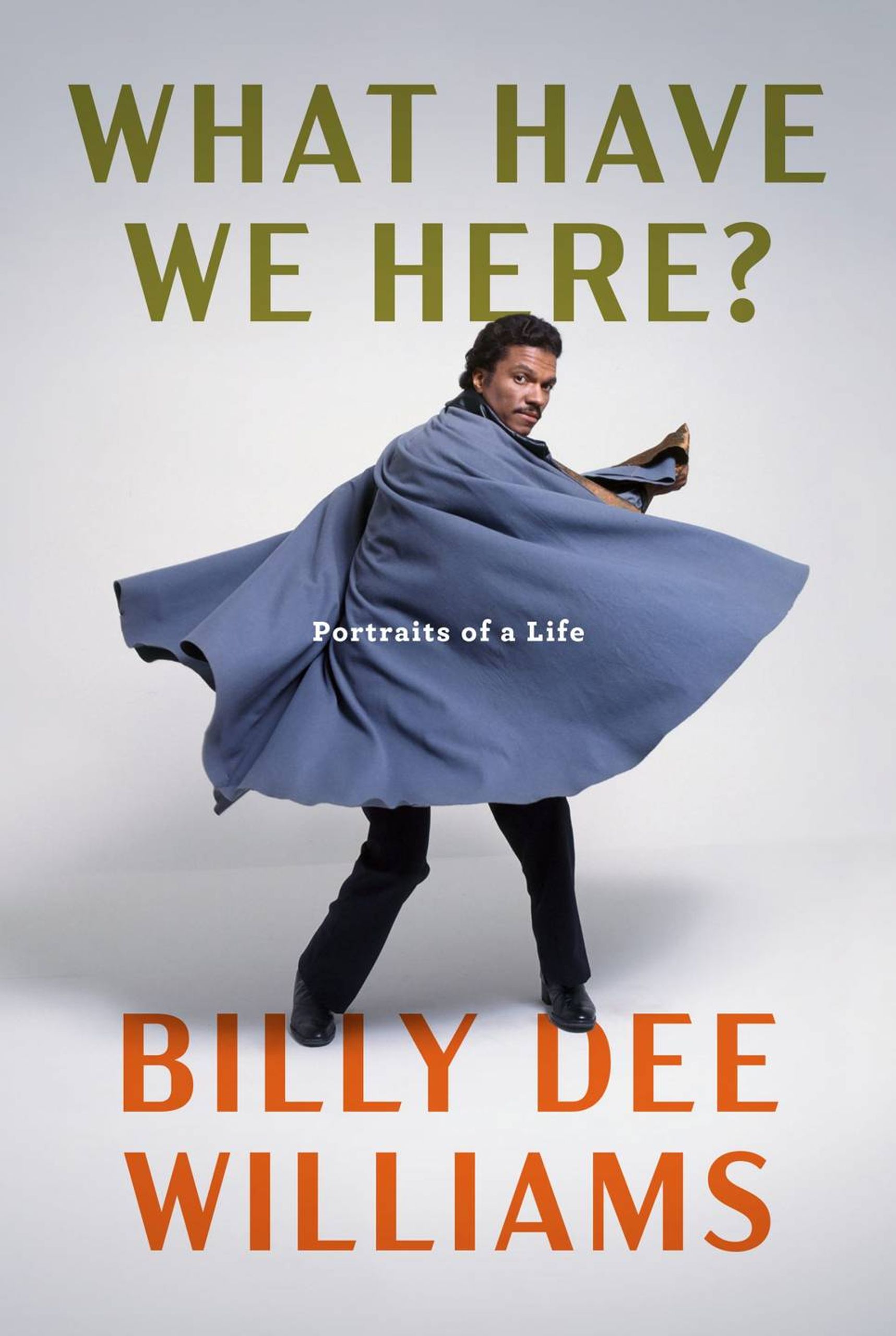Billy Dee Williams Strikes Back With a New Memoir
Decades after his biggest break as Lando Calrissian in the 'Star Wars' trilogy, the 86-year-old actor shares his life story

Hello, what have we here?
If you know the line, you know Billy Dee Williams, or at least the role that arguably made his acting career. As the good-then-bad-then-sort-of-good-again Lando Calrissian from George Lucas' original "Star Wars" trilogy, Williams delivers the iconic phrase in "The Empire Strikes Back" upon seeing Princess Leia for the first time. Now, over 40 years later, he's borrowed it for the title of his new memoir, "What Have We Here: Portraits of a Life."
"I thought it was a good title, an interesting title, a little bit fun," the 86-year-old actor recently explained to Next Avenue. "It lends itself to the absurdity of my life."
"I thought it was a good title, an interesting title, a little bit fun."
Seated under a cabana on a sunny day at his home in Los Angeles, Williams seems to be taking a page from his own book. It opens with him dining on a breezy West Hollywood patio, glass of chardonnay in hand, while fans drop by to say hello. As the "Star Wars" franchise continues to introduce Williams to new generations of viewers, his appeal spans all ages. Older fans likely recognize him from films like the 1971 tearjerker "Brian's Song" or the Diana Ross vehicle "Lady Sings the Blues" from the next year — or from the 1980s soap "Dynasty."
When a young woman excitedly approaches Williams with her mother, whom she says loved him "back in the day," he unexpectedly segues into what is, perhaps, the book's most poetic rumination on getting older.
"The days sit in my memory like shards of glass of various sizes and shades," he writes, "strung together and suspended from on high, dangling, reflecting light, a light of a full life."
The Rest Was Not History
Williams made his Broadway debut at the Alvin Theatre (now the Neil Simon Theatre) when he was just 7 years old. His mother, a secretary for producer Max Gordon, had suggested that her son audition for Gordon's upcoming project, George Gershwin's "The Firebrand of Florence." Williams was displeased with his tryout, and begged the director for another chance. After a second go, he remained unsatisfied and started to cry. "Even then," he writes, "I knew I had a better take in me."

Williams ultimately landed the role "and ever since, I've said I've cried my way into show business," he jokes. But the rest wasn't, exactly, history. In a career-risking move, eight-year-old Williams refused to say a racially insensitive line in front of an esteemed director at his next audition. His stage career halted. He accepted a prestigious scholarship to study portrait painting at the National Academy of Design a decade later.
To this day, Williams remains a dedicated painter. "You know, I'm always doing something," he said. "If I'm not painting, I'm drawing." It once seemed like Williams had chosen painting over acting. However, "when I wanted to go right," he observes in his book, "the universe had a way of sending me to the left."
'Acting Found Me'
Despite Williams' near brushes with fame as a child, he wouldn't have landed back in the entertainment industry without luck. The actor recalls how he literally bumped into a CBS casting director when he was an art student, after running into a New York department store one cold day to warm up. Williams took the man's card, and began working as an extra on television. "The acting work went so well, in fact, that I soon had a dilemma: whether to pursue acting or painting." When a friend pointed out that Williams was already working as an actor, Williams realized that he had decided.
"Soon I had a dilemma: whether to pursue acting or painting."
"I never really looked for acting," he told Next Avenue matter-of-factly. "Acting found me."
It's something he considers to be part of his destiny, despite often grappling with questions of existence. "We're all struggling with how we fit into all of this," Williams said, "so I'm not unlike anybody in that sense. We're like those little mites on a plum or an apple. Yet at the same time, we become kind of a centrifugal energy that affects many, many lives."
Thinking About His Legacy
Today, Williams says he's painting less often. "I feel like I'm repeating myself, so I don't do as much," he admitted. "However, I'm still working on certain techniques — like meta-minimalism, trying to express a full range of emotions with few modals."
It seemed opportune then, especially for someone who's used to shifting between different forms of expression, to focus on writing. "I'll be eighty-seven in April, so I've been thinking about my legacy," Williams explained, and after a pause and a slow, Lando-esque smile, "So here I am."
"I'll be eighty-seven in April, so I've been thinking about my legacy."
Raised in Harlem on 110th Street, Williams grew up immersed in the arts. "We took the bus to Radio City Music Hall," he writes, "the subway to Broadway theaters, and we listened to classical music and opera at night." Actress Nina Mae McKinney, famously known as "Black Garbo," lived in his friend Lando (yes, Lando)'s building; jazz singer Sarah Vaughan lived in his uncle's. Williams recalls running into both women as a boy, starstruck.
While rehearsing for "The Firebrand of Florence," Williams remembers seeing Humphrey Bogart, Lauren Bacall and film noir femme fatale Audrey Totter casually standing by the orchestra pit. Later, as an art student, he spotted Greta Garbo backstage while visiting the theater with his mother, and remembers how her presence affected everyone nearby. "She had dispensed with the grandeur and mystique and was just present," he relays in his book, "and real."
Next-Level Stardom
These celebrity sightings and interactions — including Muhammad Ali, who "was friendly and we joked about which one of us was the prettiest" — culminate in Williams' book with the one you'd imagine. "I heard George Lucas," he recalls of a life-changing phone call with his manager, "and I said, 'I'm in.'" Lando Calrissian and his musical-sounding name captivated Williams from the start, particularly his style of dress ("I mean, a cape! Amazing! It was old school"). And when Williams met Irvin Kershner, director of "The Empire Strikes Back," for the first time, he says they spoke for hours. "I think he found more to me than he expected," Williams writes. "A little swagger also didn't hurt."

Even with the success of the first "Star Wars," the sequel's impact exceeded Williams' expectations — as well as fans' response to his controversial character. He says he couldn't go anywhere after its release without being shamed. Students and parents at his daughter's school were outraged by Lando's seeming betrayal of Harrison Ford's Han Solo, and weren't afraid to let Williams know it. Even a flight attendant stopped to ask him, "How could you?"
It was funny, Williams says, "until it wasn't — until I sensed a Black/white thing might be brewing." Lando wasn't a bad guy, Williams maintains; he was simply caught in an untenable situation.
A Full Life
Williams is forthcoming about his struggles, which are not only artistic and existential, but romantic. After sneaking away with a young woman at a party as a teen, "I felt like I had discovered a new superpower," he writes, and credits the experience for launching his eventful love life. Williams started having high-stakes dalliances almost as quickly as he started dating, stepping out on his high-school sweetheart at seventeen to hook up with married women in his neighborhood. He dedicates his book to "all my wives, and everyone else in my life who has put up with me through the madness."
"Sometimes I feel like I'm giving up too much. I'm revealing too much."
His ravenous libido might have helped him succeed. Diana Ross picked up on it right away, Williams observes, when he read with her for "Lady Sings the Blues," executive produced by Motown founder Berry Gordy Jr. "Although Diana didn't offer much commentary beyond a polite thank-you, I could feel the heat on her skin," the actor recalls, "and I have no doubt that Berry saw it, too."
Williams even suggests that Gordy — notably Ross' former lover — became jealous of the co-stars' kissing scenes and found countless excuses to interrupt them. It wasn't too serious, apparently. Gordy became the godfather of Williams' daughter Hanako and paired him with Ross again in the 1975 drama "Mahogany." (Hanako keenly told her father when she was in high school, "Daddy, I love you. But I'm not going to marry someone like you.")
Though Williams acknowledges that vulnerability is key to telling his life story, he said he still has reservations about allowing himself to be so frank. "Sometimes I feel like I'm giving up too much. I'm revealing too much," he confessed to Next Avenue. "It's a dual feeling, I guess. It's okay, but then whoa, whoa, whoa: Should I be doing this?"

These days, Williams works consistently as a voice actor and plays Lawrence Todd, father of Lisa Todd Wexley, on the Max series "And Just Like That." He hopes that if his memoir succeeds, he can return to the coffee table book he's been working on for 20 years, which showcases his artwork. "I don't want to give up too many moments right now," the actor revealed. "I feel like I'm no longer going up. I'm at the top going down."
Still, he doesn't want to come across as feeling sorry for himself — though, he chuckled, "I do have a tendency to do that." The purpose of his memoir isn't to dispense advice ("I don't do things like that"); he simply wants people to enjoy the stories he's accumulated throughout his life.
The main takeaway is this, Williams concluded, flashing Lando's smile again: "Read my book."

Sabrina Crews is a digital editor for Next Avenue and a former reporting fellow with the Robert N. Butler Columbia Aging Center and Columbia Journalism School. Read More

